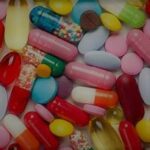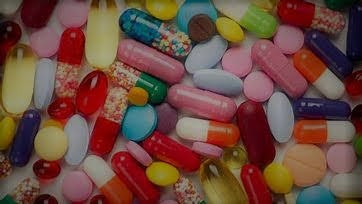
In today’s age, we have reached, this height in medical science, where treatment of major diseases is possible. However, it seems that we are going in such a hurry; soon we will found us to left on the finish line. No wonder that time is coming soon when humans will suffer from small diseases and here they will die too. Yeah, It will be soon, and it will be so the overuse of, Antibiotics can cause the neutral antibiotics, so that if person is having minor diseases then it will be leading to failure or disaster.
What is Antibiotics?
Antibiotic is drug that is useful to treat bacterial infections. However, antibiotics are not effective in treating viral infections/ viruses, such as the cold, the flu, AIDS. If you have an infection then it is important to know that whether bacteria or a virus has causes it. This is why vaccine is often useful to prevent against these diseases, instead of using antibiotics to cure them once they develop.
Excessive use of antibiotics
Today doctors are also very widely prescribed antibiotics. The patient often speaks to the doctor to write antibiotics, even if it has viral infection, and there is no effect of antibiotics, because they are unaware of the proper usage of antibiotics. Since the doctor does not want his patients to be angry, they try to please their patients, so they often gives antibiotics, even in cases of viral infection, even when they know that antibiotics are not effective in this scenario. Apart from this, it is often difficult for doctors to explain to patients that antibiotics are not effective. In 2007, it is estimated that around 28% of doctors has prescribed their patients to use antibiotics if a patient has an infectious disease caused by an influenza virus. They know that it is a viral illness and antibiotics will not work. This results in a large amount of unnecessary antibiotic prescription
The doctor is unknowingly contributing to the development of many deadly superbugs in the human body by prescribing unnecessary antibiotics. An antibiotic has the ability to kill bacteria, but bacteria can be resistant to the drug. When the human body is consuming an antibiotic, the weak bacteria die, but strong antibiotic resistant bacteria are able to antigen and spread, and they do it very quickly. There are three main reasons for this spread. First of all, bacteria are able to regenerate very quickly. The population can be doubled in only twenty minutes. Second, the high level of bacterial exchange potential is resistant to the bacteria; their resistant genes can be passed on to other bacteria even in different species without childbirth. Third, bacteria have high rates of mutation; these resistant bacteria can cause antibiotic-resistant diseases, which are almost impossible to cure.
Antibiotic will be ineffective
Today, the ability to kill antibiotic bacteria in the whole world is decreasing. Antibiotic, this proved to be effective for the first common infections, have become neutral now, if this happens then that day, will come soon when no antibiotic will be proved effective in removing the disease. Even so, the good thing is that the world is not oblivious to this challenge and knows that this challenge can reduce by reducing the use of antibiotic. Today all the countries are working together to reduce the use of antibiotic together.
What is the resistive challenge?
Suppose you have any infection, you take any antibiotic for its treatment. For example, as you take penicillin but it is quite possible that your infection from penicillin is not a proper and effective treatment because your infection may be due to bacterial, on which penicillin will not be effective on your infection. The more we use the antibiotic, the more bacteria they have the power to fight. Its new breed will spread rapidly and antibiotic will be neutral. On the different side, if we use less antibiotic, then the breed of bacteria with its immune system will flourish.
How big is this challenge?
The World Health Organization estimates that by the year 2050 approximately 10 million people worldwide will die, because antibiotic has no effect. And this will damage the world economy by about 66 trillion dollars.
How did this happen?
Nowadays, humans often use the abundance of antibiotics in normal conditions. Doctors also often write antibiotics under normal circumstances. In many developing countries including India, drug shoppers give antibiotics medicines without prescription. In Europe, many countries have tremendous use of antibiotics and in many Western countries; antibiotics are also given to increase animals rapidly, through which such bacteria grow in their body, which do not have antibiotic effects. And when human eat the meat of such animals, antibiotic resistant bacteria within these animals reach in humans through these animals.
How to prevent
Two years ago, under the leadership of the World Health Organization, all the countries agreed to the Global Action Plan to fight this challenge of antibiotic. This will work to identify antibiotic resistant bacteria. Also doctors will be encouraged to write at least antibiotic. Also, in many countries, efforts will be made to overcome this challenge with mutual cooperation.
Antibiotic Research:
The biggest difficult antibiotic resistant bacteria have yet to identify. However, pharmaceutical companies and scientists are also being helped to develop new antibiotics.
In last, these efforts lead to new hope for humanity. It seems that we will find a way to deal with antibiotic resistant bacteria. Even if the use of antibiotic is very important, its resistant bacteria will flourish. This means that we will have to deal with this challenge continuously.
